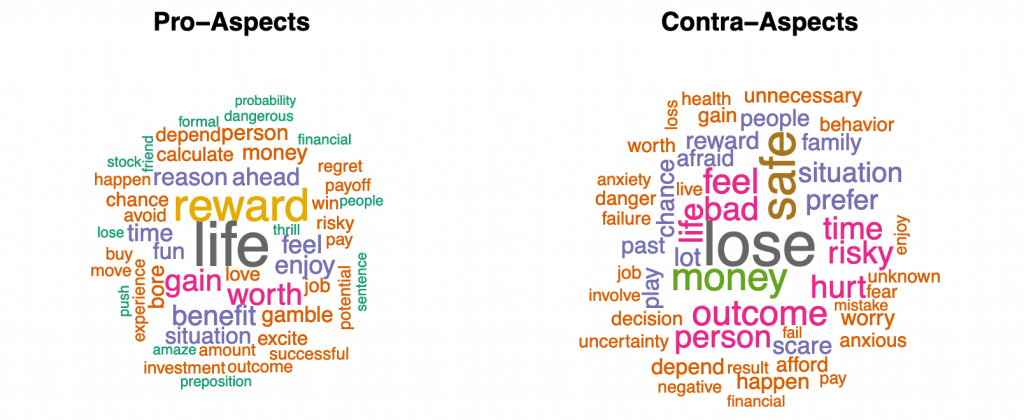Markus Steiner, Florian Seitz, and I have a new paper (just published in Decision) in which we investigate the cognitive processes underlying people’s self-reports of their risk preferences. Specifically, we were interested in the information-integration processes that people may rely on during judgment formation, with a particular focus on the type of evidence people may consider when rendering their self-reports. In doing so, we aimed to contribute to a better understanding of why self-reports typically achieve high degrees of convergent validity and test-retest reliability, thus often outperforming their behavioral counterparts (i.e., monetary lotteries and other lab tasks).
To achieve these goals we employed the process-tracing method of aspect listing, to thus gain “a window into people’s mind” while they render self-reports. Our cognitive modeling analyses illustrated that people are particularly sensitive to the strength of evidence of the information retrieved from memory during judgment formation. Interestingly, people’s self-reported risk preferences and the strength of evidence of the retrieved aspects remained considerable stable in a retest study (i.e., across a one-month interval). Moreover, intraindividual changes in the latter were closely aligned with intraindividual changes in the former – suggesting that a relatively reliable psychological mechanism is at play when people render self-reports.
Beyond our quantitative modeling analyses, the process-tracing method of aspect listing also rendered possible more qualitative insights, such as concerning the sources and contents of the information people retrieved from memory (see the word clouds below). To learn more about all further details on this, please have a look at the paper!
Steiner, M., Seitz, F., & Frey, R. (2021). Through the window of my mind: Mapping information integration and the cognitive representations underlying self-reported risk preference. Decision, 8, 97–122. doi:10.1037/dec0000127 | PDF
First appeared on https://renatofrey.net/blog





